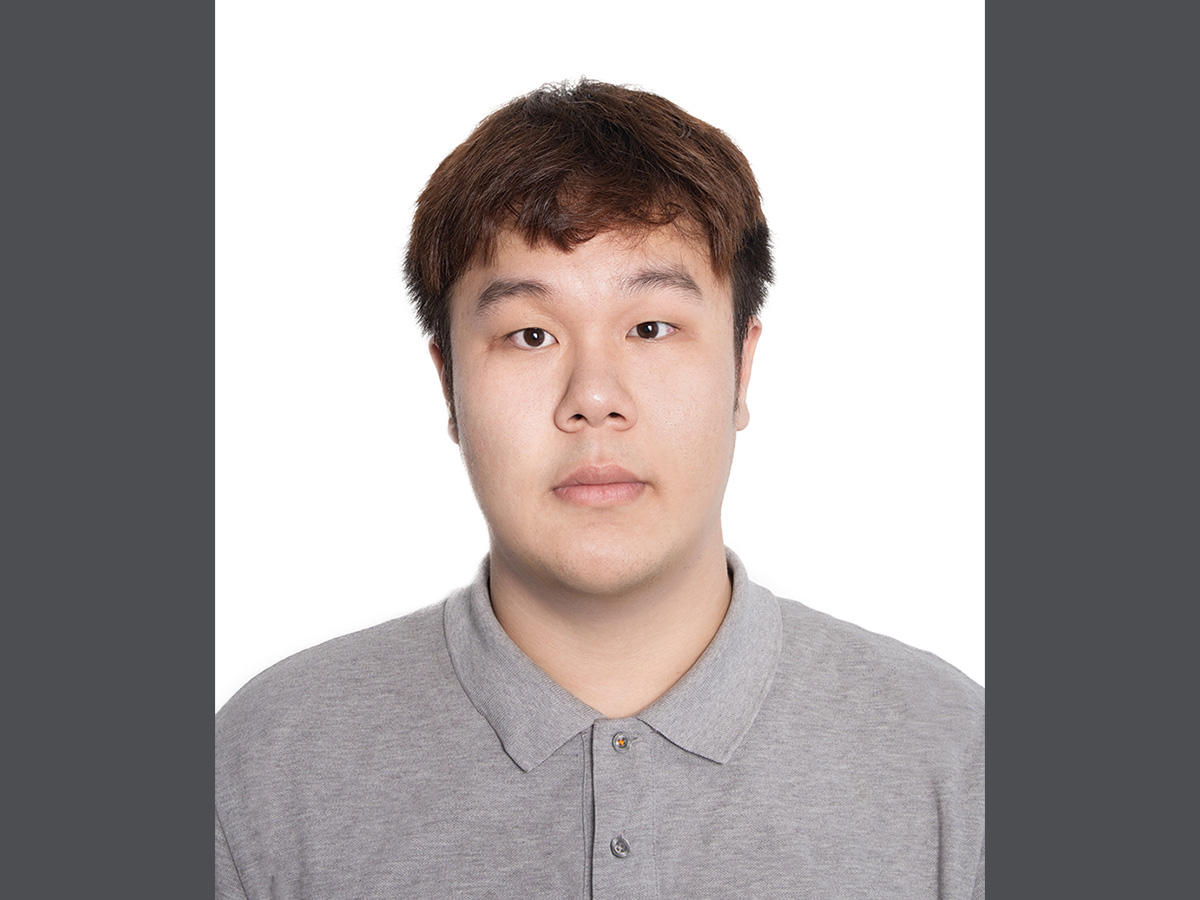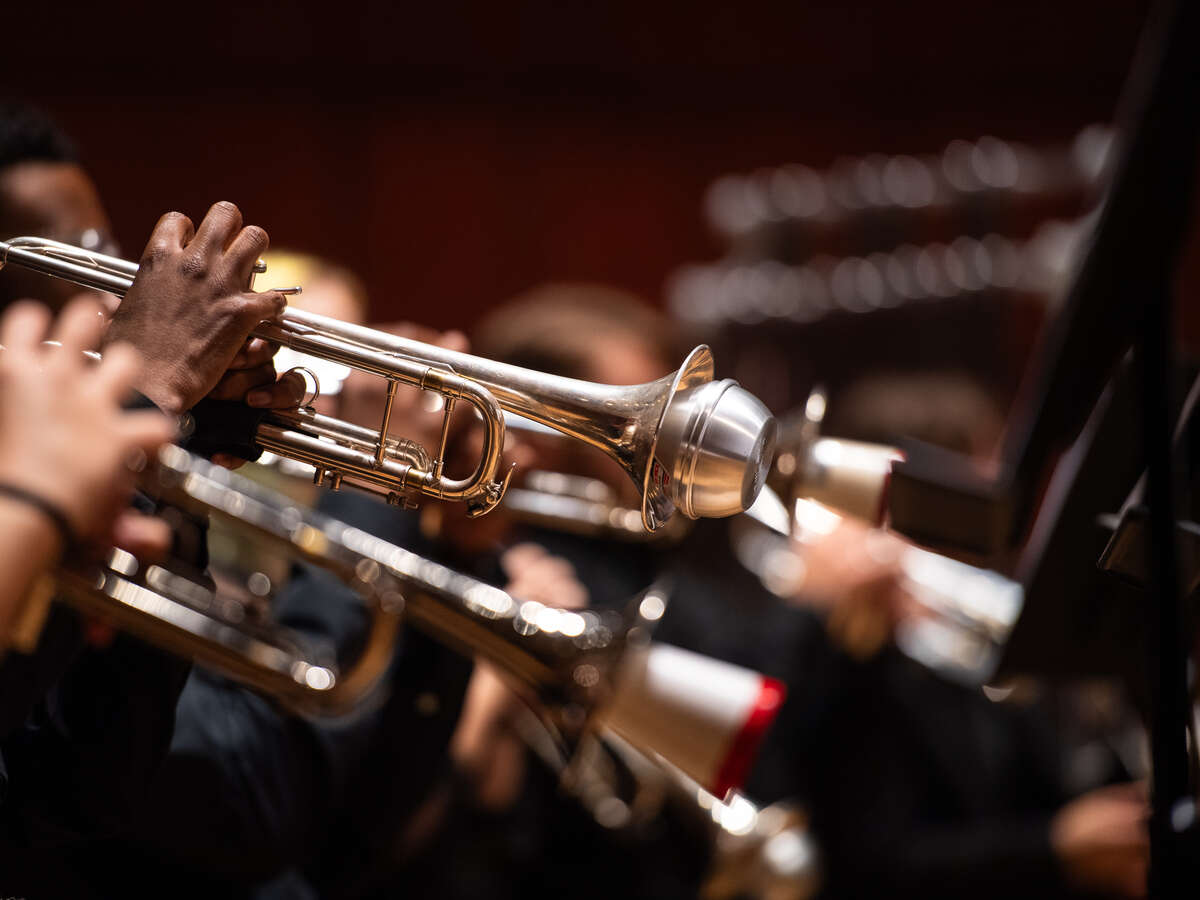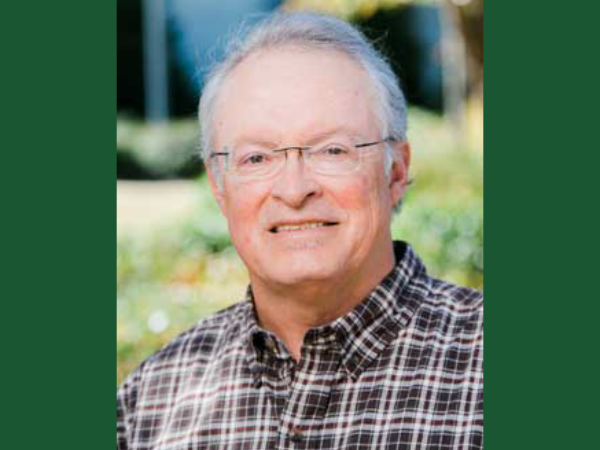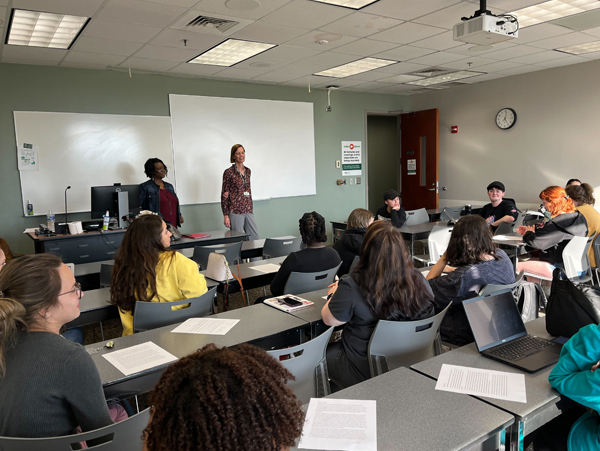 Drs. Gezon and Mwenesongole bring their classes together for the first timeInterdisciplinary collaborations are heavily promoted and extolled within academia, but, sometimes, there are challenges in realizing them. This is even more true for seemingly unrelated disciplines. As a forensic chemist and a cultural anthropologist, we are excited to share a collaborative and fruitful exercise we recently pursued based on different disciplinary approaches to the study of drugs.
Drs. Gezon and Mwenesongole bring their classes together for the first timeInterdisciplinary collaborations are heavily promoted and extolled within academia, but, sometimes, there are challenges in realizing them. This is even more true for seemingly unrelated disciplines. As a forensic chemist and a cultural anthropologist, we are excited to share a collaborative and fruitful exercise we recently pursued based on different disciplinary approaches to the study of drugs.
We met by chance at a dinner celebrating Dr. Sylvie Mrug, the recipient of the 2021 Ireland Award for Scholarly Distinction. During the event, we started chatting and recognized our different approaches to the study of drugs. Given this discovery and our desire to work together, we developed a plan: we would lecture in each other’s class one time, then host a joint class exercise evaluating a mock scenario of drug overdose.
We pursued this goal in Spring 2023 with our respective courses: ANTH 428/528 “Drugs & Culture” and FS 673-7P “Forensic Drug Analysis.” During Dr. Mwenesongole’s visit, students in “Drugs and Culture” learned the rudiments of forensic drug analysis — specifically, they learned how drugs are tested for their constitutive components and how this information is used in public health alerts, in the criminal justice system, and to trace the origins and sources of drugs for purposes of law enforcement to help stop the flow of drugs into communities.
During Dr. Gezon’s visit, students in “Forensic Drug Analysis” learned about cultural contexts of drugs through the concepts of ‘set’ (mindset) and ‘setting’ (physical context) to suggest that cultural understandings about drugs shape experiences with them. Students also learned that those factors set the stage for intervening effectively to make drug experiences safer.
Through these visits, both classes learned how to understand and mitigate drug experiences from different angles. As the students pointed out, the forensic scientists focus on the ‘what’ (what are the actual substances involved), and the anthropologists focus on the ‘how’ and the ‘why’ (the cultural beliefs, individual behaviors, and social practices surrounding them). Together, these different approaches give a more holistic and realistic picture of how to think about and confront drug problems.
On March 22, 2023, students from “Drugs & Culture” joined the “Forensic Drug Analysis” regularly scheduled evening class for extra credit. They broke up into four groups of five and discussed a fictionalized case study. In the case study, a college student, Leah, buys Adderall illegally from another student in order to prepare for her exam. Leah ended up passing out and was rushed to the hospital, along with the pills that were not yet consumed. As a result of the forensic toxicological investigation, it was found that the pills were laced with fentanyl, caffeine, and MDMA (ecstasy).
In a reflection on the experience, one of the anthropology students commented: “I found it incredibly valuable to talk to the forensics students about their area of expertise. I got the chance to ask about some of the technical and procedural aspects of identifying drug substances, which really helps get a more complete picture of the ways in which the legal and medical systems interact with drugs.”
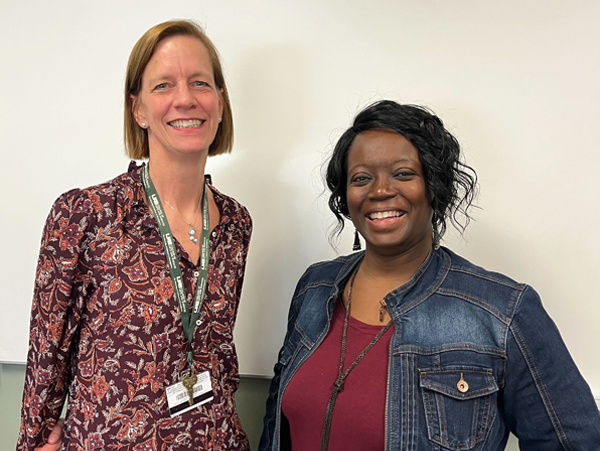 Dr. Lisa Gezon and Dr. Ellen MwenesongoleThe students also considered the cultural and social contexts surrounding this case. One of the forensics students pointed out perspectives that the anthropology students brought to the table: “I questioned why [Leah] would have done this and thought it was honestly very irresponsible and naive for her to do, but the anthropologist students immediately brought up trust, and how Leah trusted the person who provided her drugs because he was a student and she felt more connected with him.”
Dr. Lisa Gezon and Dr. Ellen MwenesongoleThe students also considered the cultural and social contexts surrounding this case. One of the forensics students pointed out perspectives that the anthropology students brought to the table: “I questioned why [Leah] would have done this and thought it was honestly very irresponsible and naive for her to do, but the anthropologist students immediately brought up trust, and how Leah trusted the person who provided her drugs because he was a student and she felt more connected with him.”
At the end of the joint class, we asked them to reflect together on the value of interdisciplinary team collaboration on confronting a social problem such as this. A forensics student commented: “We give the hard evidence so that people in anthropology and culture-centered areas can explain why these [drug use trends] may be happening in a way that society will understand and maybe learn from.”
In reflecting on the exercise itself, students found it valuable. One stated: “I really think these exercises, especially the discussion breakouts we had, were important in [getting out of our silos] and expanding both our worldview and knowledge base.”
On a practical note, one student stated: “I think that the discourse is important in promoting collaboration between the fields in the future in the realm of policy-making. As this, in my opinion, is the only area the two fields can come together to affect change, without compromising the integrity of the scientific investigation that is at the heart of forensics.”
In the end, we found the exercise not only pedagogically engaging, but also important for training students to see multiple perspectives as they face challenges in understanding and addressing complex issues that span natural science and social science fields. We would like to encourage the development of more interdisciplinary learning opportunities, even thinking outside of the box of traditional models.
Lisa Gezon, Ph.D., is a cultural anthropologist and chair of the Department of Anthropology, and Ellen Mwenesongole, Ph.D., is a forensic chemist and associate professor in the J. Frank Barefield, Jr. Department of Criminal Justice.
